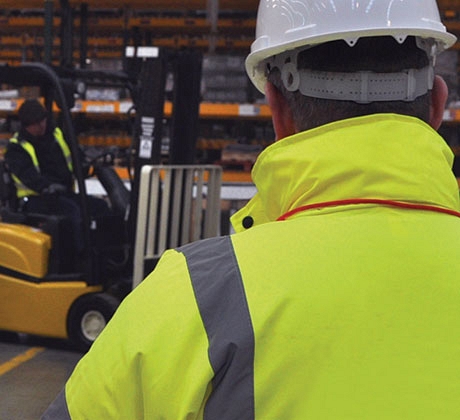Companies everywhere can sometimes have to adapt and change quickly. For forklift operators, this can mean becoming familiar with new jobs, site layouts and equipment, or refreshing their skills.
Maintaining safe operations throughout a time of change falls to managers and supervisors, who must provide vital monitoring, supervision, and support for operators. It is therefore essential that those overseeing lift truck operations have a sound understanding of the risks and what to look out for, so that they can effectively fulfil their roles in upholding safety on site.
Although managers and supervisors do not need to be certified forklift operators themselves, they must be able to recognise the difference between safe and unsafe practice so that they can correct mistakes or nip bad habits in the bud before they become the norm*. And at a time when businesses may be facing unprecedented pressures, they have a key part to play in ensuring safety remains a priority.
Managers who understand the dangers, actively monitor their forklift operations and have the skills and confidence to rectify any bad practice they find, will reduce the risk of accidents. Not only will this benefit your team, but it will ensure your business remains productive and compliant. Ultimately, ensuring you have effective managers is much more cost-effective in the long-term, and could save you thousands in costly disruptions, delays, repairs, or fines and fees, should you have a H&S breach.
Empowering managers to uphold safety
Good supervision will always be highly important. Amongst any changes required under the current circumstances, managers need to ensure that operators continue to follow safe systems of work and best practice every day. After all, the serious consequences of forklift accidents remain a reality, so managers and supervisors must recognise the risks and the importance of remaining vigilant.
When it comes to monitoring, there are many methods available to managers, from walking the shop floor to using CCTV or KPIs. So long as managers know what to look out for, monitoring will highlight any causes for concern or procedures not being followed, and they can then take the necessary action to put this right. (For further guidance, our one-page guide to monitoring methods for managers is available to download here).
If they are in any doubt, specialist training is available for managers to ensure they are fully familiar with the risks surrounding forklift operations. It will also outline their responsibilities for upholding safety and provide them the skills and confidence to meet them, using effective monitoring and communication with their colleagues.
Flexible online training for managers
Our ‘Managing Forklift Operations’ course does just that and is now available online as a flexible alternative to a face-to-face learning. Delegates learn whenever and wherever they choose, at their own pace and around their working patterns and daily demands. As a result, the e-learning course often takes fewer total hours to complete, as well as less time/cost to implement. It’s an efficient and accessible way to ensure those responsible for your forklift operations have the skills and knowledge they need to keep them working safely.
Remember, managers and supervisors provide the link between what’s written into your policies and what happens in practice. Your procedures are only effective if they’re being followed, and your managers play a vital role in ensuring that they are.
*The requirements for managers and supervisors of forklift operations are outlined in Approved Code of Practice L117, and for those looking for guidance on forklift safety and training, this remains the core reference document from the HSE.
You can download our guide to Training Requirements for Managers under L117 here, or to find out more about our ‘Managing Forklift Operations – E-learning’ course, click here.

